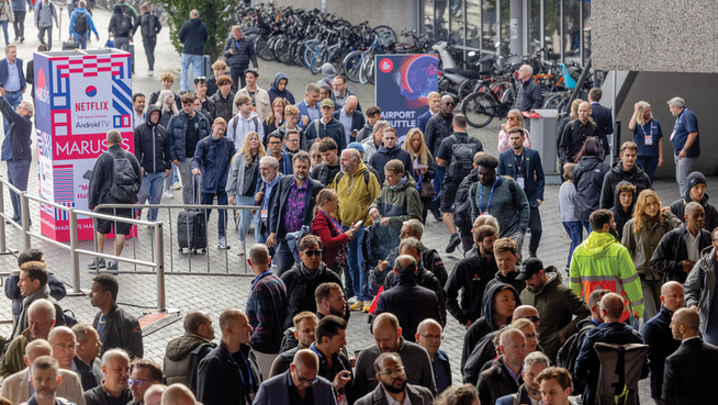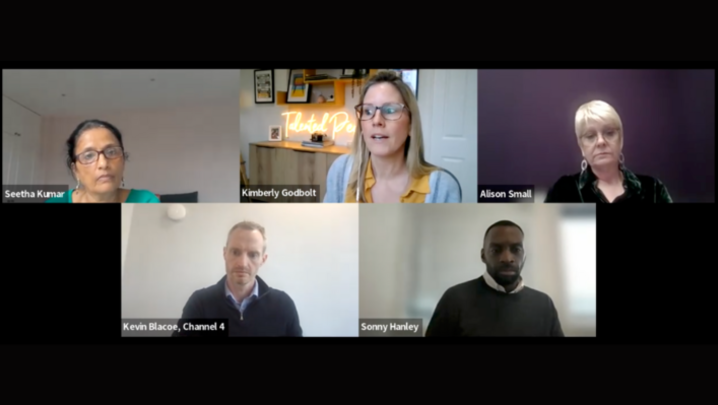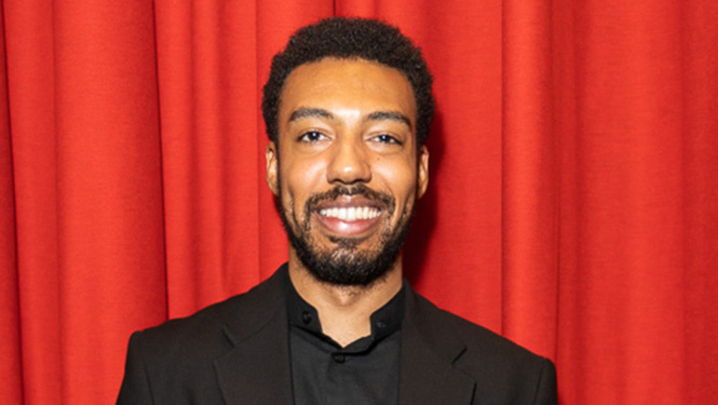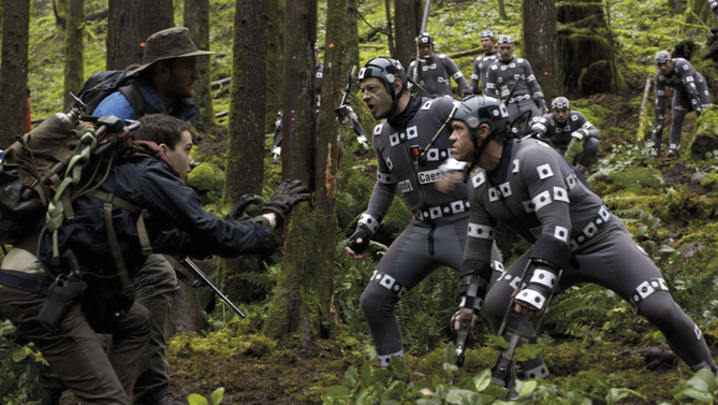IBC review 2: An RTS London expert panel explored the major themes to emerge from Amsterdam this year, reports Matthew Bell
Amsterdam’s annual media technology jamboree was dominated by three themes – Ultra-HDTV, virtual reality and the shift to an IP-based infrastructure – according to the experts assembled for London Centre’s annual review of IBC.
“I go to IBC to see what’s maturing in the industry to the point where it rolls out into the mass market,” said Nigel Walley, Managing Director of media consultancy Decipher.
“[It struck me] how painful Ultra-HDTV is turning out to be for the industry,” Walley continued. “For somebody looking for a bridge into the mainstream, I wasn’t seeing it. I sensed a mood of tired resignation that Ultra-HDTV transition is going to be just as, if not much more, painful than the transition from standard definition to HDTV.”
At least, pointed out Peter Weitzel of the Society of Motion Picture & Television Engineers, “with Ultra-HD, we’re down to two standards [from seven]”.
Higher dynamic range, which enhances Ultra-HDTV pictures, was also much in evidence at IBC, but it is beset by problems of standardisation. “If the industry is struggling to come to terms with it, the poor consumer has no hope,” admitted Simon Gauntlett, Chief Technology Officer at the Digital TV Group. The DTG is the members’ association for digital TV in the UK.
“As a viewer, not as someone trying to decide the standards, I liked the experience and looking at [HDR] content,” said Anna Patching, the winner of this year’s Coffey Award for Excellence in Technology (see box, right).
The virtual-reality demonstrations at IBC intrigued the panel, which had been assembled by RTS London to review the kit showcased in Amsterdam.
“The ability to do live 360° [virtual reality] is exciting, but there are huge challenges in the area for the content creator, as well as the device manufacturers,” said Gauntlett. “It needs a whole new production language: Where do you put the sound recordist? Where do you hide the camera operator?”
“Virtual reality is clearly coming. Do I think it’s going to replace television? No, but it’s clearly something we need to embrace in short-form content,” he added.
For Decipher’s Walley, the virtual-reality exhibits had “an element of The Gadget Show” about them. “Nothing I saw around virtual reality talked to me about TV. To me, it took all the bad aspects of 3D and multiplied them by 10.”
Patching agreed: “I don’t think virtual reality ties in with traditional broadcasting.” It will, however, “have a massive impact in the games industry”, argued Walley.
The time to shift the media production and distribution infrastructure to one based on IP (internet protocol) is surely now, reckoned the panel. The industry’s ubiquitous SDI (serial digital interface) standard is very reliable, but inflexible – it cannot, for example, connect to Cloud-based video services.
“IP was everywhere, not just in distribution but also in production [where we can] do live video across IP networks reliably. People are now starting to use it in anger in the production world,” said Gauntlett.
All the exciting equipment on show at IBC has a purpose, Weitzel reminded the audience: “What really sells is good content and what we see at IBC are the sort of things that enable those who have a very artistic, creative idea to get it recorded, manipulated and then transmitted to the maximum number of eyeballs.”
London Centre’s IBC review was held at the DTG in central London on 23 September. The event was chaired by journalist Nick Radlo.
Meet the RTS young technologists
Michael Colyer received the annual RTS Young Technologist Award in July, while Anna Patching – who was part of London Centre’s IBC 2015 review panel – won the Coffey Award for Excellence in Technology, the runner-up prize.
Colyer missed the London event because of work commitments in Japan, where he was working as a Special Cameras Engineer at Formula One Management.
‘I develop and implement small trick shots that give the audience a unique angle on the race,’ he explained. ‘We’ve installed cameras in bollards, kerbs and pit crew helmets, to name just a few.’
His ambition is to develop special camera systems to promote more dynamic and compelling storytelling. ‘This is an especially exciting time to be taking on such a challenge, as the industry is slowly moving towards higher-definition images – such as the 4K and 8K [implementations of Ultra-HDTV] – in combination with the rise of second-screen viewing. This means that offering additional content from unique perspectives is becoming ever more important,’ he suggested.
Anna Patching, a Trainee Broadcast Engineer at the BBC, said her RTS award was unexpected, adding: ‘I was delighted that Michael won, because he’s such a good engineer.’
She described the current broadcasting landscape as ‘exciting but quite scary as well. Since I graduated from Ravensbourne in 2012, the technology has changed so much. I’m fortunate on my trainee scheme that I get taught lots of IP stuff – there’s lots to learn.’
Next summer, Patching will be a freelance sound assistant at the Rio Olympics, providing host coverage of the tennis event. She worked in the same role for the equestrian events at the London games in 2012.
‘It was incredible to be part of the atmosphere and the whole circus that goes with the Olympics,’ she said, adding that a job at the 2018 winter games in PyeongChang would complete her personal Olympic set.






